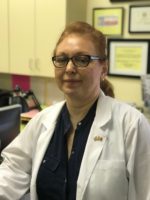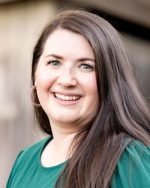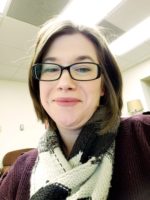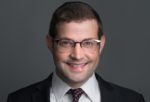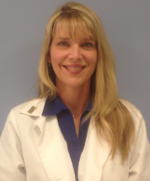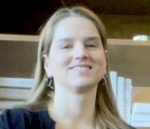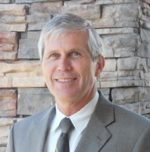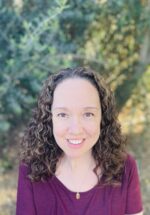Provider Directory
Looking for professional resources? The Misophonia Association is pleased to share this Provider Directory.
Research is ongoing and real progress is being made, but there is currently no diagnosis or treatment for misophonia and there is currently no scientifically proven cure for misophonia.
There are, however, some tools and coping skills to help manage misophonia; approaches that reduce its perceived intensity, omnipresence, and burden. Our Provider Directory below lists providers who can offer tools and coping skills for those with misophonia.
If you can’t find a provider in our Provider Directory, you may find one of these websites helpful in your search for treatment: Misophonia Institute or Misophonia International.
The Misophonia Association does not endorse or recommend any specific misophonia treatments or providers. The Misophonia Association is providing information on our website, for self-help purposes only and to assist in finding a local provider for treatment. Any links that have been provided are for your convenience and for informational purposes only; this does not constitute an endorsement or approval by the Misophonia Association.
NOTE TO PROSPECTIVE PROVIDERS:
If you have an interest in being listed in our Provider Directory, please send an email and tell us about your experience and background in treating misophonia. If approved, we will be happy to include you in our directory. Please send your email to Dr. Marsha Johnson at: othtcdrjohnson@gmail.com
(The fee for a three-year listing is only $100).
Approach: We treat Misophonia with a three phase approach:
Protect the patient from trigger sounds using sound generation.
Reduce or eliminate central gain of trigger sounds.
Rethink the trigger sounds and create new neural networks to reduce or eliminate the negative reactions of the limbic system to trigger sounds
Dr. Land is always searching professional literature for the most current research and information regarding Misophonia, hyperacusis and other sound sensitivities. She is focused on finding the best therapies to help her patients live easier, more engaged lives.
Testimonial #1: It has been hard work and a commitment, but overcoming most of my misophonia has given me my life and hope back. The sound generators, combined with counseling, have given me the tools to cope successfully and function in everyday society without issue. Things that once paralyzed me are now merely background sounds I often don’t notice. Fifteen years of misophonia — I thought I would never be free, and now I am!
Testimonial #2: Two years ago I was extremely limited and handicapped regarding daily activates. I had severe migraines and was diagnosed with severe hyperacusis. I had two hearing tests at other facilities, which were painful, causes excessive anxiety, exhausting, and caused migraines. Dr. Paula Land’s tests were gentle and I felt safe with her. It only took one year and I had my life back completely! During this past year, the 2nd year, I have thoroughly enjoyed my life! She is a blessing from God. She is worth 6 hours of driving!
Credentials: Aud, CCC-A, F/AAA, ABA, Fellow, TPA
Irving, TX
75063
Approach: Neurophysiological model of hearing loss and misophonia; modified behavioral therapy.
We offer many acoustic therapy systems practice such as Desyncra, Levo system, The Listening Program (TLP), as well as behavioral modification therapies. We offer teleaudiology to address tinnitus, hyperacusis, and misophonia.
Credentials: TRT, CH-TM
91411
I’m Dr. Stephanie Davis, I’m a licensed Psychologist who is passionate about helping clients with misophonia, anxiety concerns, and obsessive compulsive disorder. I provide virtual services in both California and Florida.
I understand how challenging and isolating misophonia can feel. My goal is to provide an empathetic environment where you can feel supported and comfortable sharing. Even though we can’t change those around us, we can help provide them with greater understanding of what you’re experiencing. We can have talks or joint sessions, allowing family and friends to support you in your treatment.
In treating misophonia, I utilize Acceptance Commitment Therapy (ACT) and Dialectical Behavioral Therapy (DBT). We’ll work to understand triggers, adjust expectations, develop coping strategies, and figure out ways you can engage in your environment, allowing you to improve the quality of your life.
I have a background in psychological assessment and in university counseling centers (BYU, Texas A&M, St. Edwards). In these positions, I’ve come to understand how conditions can affect daily functioning. We can figure out how to adapt and seek accommodations when appropriate.
Approach: I offer diagnostic, psychotherapy, supportive, and advocacy interventions for individuals and families coping with Misophonia. My therapy approaches for misophonia and related stress/anxiety management are informed by Cognitive Behavioral Therapy (CBT), Dialectical Behavioral Therapy (DBT), and Acceptance and Commitment Therapy (ACT). I use a multidisciplinary approach with neurologists, audiologists, psychiatrists, occupational therapists, medical doctors, and other members of a client's treatment team. In terms of advocacy, I offer education to clients, families, and school personnel as needed and support individuals seeking accommodations in the school or work settings.
Primarily the clients with Misophonia who I have seen over the years report that it is most helpful and relieving to have someone validate that what they are experiencing is a "real thing" and that they are not crazy. Similarly, many clients report great value in educating family members and seeking school and workplace accommodations that offer some relief across settings.
We are a group psychotherapy practice who serves individuals across the lifespan with various psychological conditions. We have 5 office locations throughout Chicago and the west suburbs but not all providers work at all locations. We are a supportive group of professionals who pride ourselves on providing evidenced-based, caring, and compassionate services.
Certifications: Licensed Clinical Psychologist
60521
APPROACH: As a clinical psychologist, I treat misophonia with a form of cognitive-behavioral therapy (CBT) which utilizes acceptance-based approaches that help the individual learn how to respond to sound triggers so that they are less aversive and more acceptable. I also directly target the emotional response of anger/rage to enable one to feel greater control over their reactions to triggers. Additionally, I offer to integrate counseling into the treatment for secondary emotional concerns that result from misophonia such as relationship difficulties and/or other life stressors.
I also offer group therapy. It i s an ideal way to engage in an environment that is supportive, collaborative, and therapeutic. I am proud to offer one of the only therapy groups for misophonia in the entire world! This innovative group serves as a place for learning about misophonia, developing more effective ways of handling its symptoms and as a place for people to support each other. Misophonia is very lonely – come and join us!
I use pre/post measures to track progress in therapy.
I also offer my services over telehealth so I treat people over video conference for patients who are out of traveling distance.
CREDENTIALS: Doctorate in Clinical Psychology (Psy.D.)
10016
In my approach, I use both top down (cognitive) and bottom up (body based and biofeedback) approaches to treating misophonia.
I have had clients who are now able to eat with family members, live comfortably with other people, complete school, and decrease psychiatric medications. For some clients with mild symptoms, cognitive strategies were enough, but for many, a combined approach is necessary to best target the symptoms. I have never been able to eliminate the triggers, but I have supported client progress, improving their ability to manage their responses to triggers and "lengthen" their fuse, so to speak - meaning increase their resistance to the triggers. I encourage other family members and significant others to participate in therapy, as their support is often critical to the acknowledgement/acceptance of the client's issues and to practice of strategies within the client's natural environment.
I treat both children and adults, and clients often present with multiple diagnoses that must be taken into account. My youngest client with misophonia was actually 4 years of age. I have a passion for this client population and have spent much time and focus on continuing education related to misophonia, more so than any other diagnosis that I treat.
Board Certified, Neurofeedback (BCN) and SIPT Certified (Sensory Integration & Praxis Test)
APPROACH: Dr. Fox-Thomas uses an audiological approach to managing misophonia that includes a combination of counseling (including tenets of cognitive behavioral therapy), sound therapy, and biofeedback. She embraces a person-centered, holistic approach to patient care that recognizes each individual's unique needs and preferences.
TESTIMONIALS: Dr. Fox-Thomas has treated over 100 children and adults with misophonia since 2010. Anecdotal and survey results of her clinical work have been presented regionally and nationally and accepted for presentation at the 2nd International Misophonia Symposium. Although data collection is ongoing, preliminary findings of survey data indicate the majority of survey respondents (61%) reported their misophonia is “better.” They reported less awareness and disturbance of triggers.
Subjective comments included "emotional regulation has somewhat improved with regard to misophonia triggers” and “can take short sessions of triggers.” Scores on the Misophonia Assessment Questionnaire (MAQ) also improved for the majority of respondents. Nearly 80% of the patients who participated in the survey reported using sound therapy. Several patients reported the “breathing exercises” (biofeedback) were helpful. In response to the question, “What was most and/or least helpful about the services you received…?,” patients commonly referred to validation of their condition (e.g., "“Being able to talk to someone who validated what I was feeling was the most helpful thing. I no longer felt alone.”
CREDENTIALS: State-licensed Audiologist (NC, VA, and SC); Certified by the American Speech-Language Hearing Association (CCC-A), Fellow of American Academy of Audiology (FAAA), Certified Healthcoach (CHC), Certified HeartMath Practitioner; Certified Integrated Listening Systems (iLs) practitioner including the Safe and Sound Protocol (SSP)
UNC Greensboro Speech and Hearing Center offers both online consultations and in-person evaluations as well as follow ups via telecare as needed. Telepractice laws usually require licensure in the state where the patient is located. At present, Dr. Fox-Thomas is licensed in North Carolina, Virginia, and South Carolina.
Suffering from misophonia? There is hope! As a psychologist who also suffers from misophonia, I am in a unique position to help you.
Therapy for misophonia will help you:
Maintain a good self-care routine to minimize the stress that exacerbates your misophonia reactions
Create a toolkit to turn down the intensity of your physical and emotional distress when triggered
Find the right balance between giving yourself safe sound spaces, while also not missing out of the things in life that are important to you
APPROACH
I use a collaborative, client centered approach using evidence-based cognitive-behavioral therapy tools from Acceptance and Commitment Therapy (ACT), Radically-Open DBT (RO-DBT) and Coping Effectiveness Training (CET).
CREDENTIALS
Licensed psychologist in California, Colorado, and New York.
I have a master’s degree from The University of St. Thomas in St. Paul, Minnesota and a doctoral degree from The Wright Institute in Berkeley, California. I have been treating clients for over a decade in general practices at Kaiser Permanente and with One Medical Group onsite at Google. I started Misophonia Hope in 2023 to bring my psychological knowledge and personal experience to serve the misophonia community. I also specialize in OCD and related disorders.
PROFESSIONAL MEMBERSHIPS
Association for Behavioral and Contextual Science
International OCD Foundation
OTHER INFORMATION
I work with clients ages 18+. For parents of children with misophonia, I can meet for parent consultation.
I am able to see clients virtually in California, Colorado and New York and have an office to see clients in person in Redwood City in the San Francisco Bay Area.
APPROACH: Relaxation training and counterconditioning therapy
I usually provide this treatment by video-chat. I teach the patient about misophonia and exercises that allow them to develop the skill of relaxing on demand. With this skill, I then teach them what to do around misophonia triggers that will change their fundamental reflex responses of misophonia. This causes their misophonia severity to gradually decrease. In some cases, very positive activities are planned so that the response to the trigger can be "counterconditioned" and fade away. We regularly measure misoponia severity and plot the data so we can adjust the treatment as needed. For examples, see https://youtu.be/z_jaLCvZHYU
CREDENTIALS: BCBA, Board Certified Behavior Analyst
TESTIMONIALS:
Recent data shows the treatment is beneficial for 70-80% of people and those that respond well to the treatment have an average of over 70% reduction in misophonia severity.
Here is a recent, unsolicited testimonial: "Tom has been a tremendously positive force for our family. One of my children suffered tremendously from misophonia. She found Tom online and from his writings immediately self-diagnosed with misophonia. We contacted Tom, who ran his own analysis and agreed that she did indeed suffer from misophonia. We embarked on treatment with Tom, and within weeks, she substantially improved. We looked forward to our sessions, as he is kind, gentle, encouraging, positive, and data-driven, which creates a perfect combination. I can't recommend Tom more highly. His work is truly life-changing." (mother of a 12-year-old daughter with misophonia)
94550
Samantha Bookman, LMFT
More Peaceful, With Misophonia
Treating Misophonia with Body Regulation & Family Systems Tools
My practice is all virtual. I don't accept insurance but I do short term, solution focused work.
APPROACH
Two Fold Approach, assisting the person with misophonia and their family simultaneously
Working with the person with Misophonia:
Using cognitive skills to practice how one will calm their nervous system during misophonia moments
Setting up a mental map for how one will care for themselves
Creating a greater sense of safety and security, “I have tools, there are things I can do to help myself, I will take care of my body and my emotions, I am not powerless in how I respond to misophonia”
Learning & practicing strategies to regulate the nervous system and bring it back into a calm (or calmer) state during and after a misophonia moment
Working with Family Dynamics:
How to balance avoiding harm for the person with misophonia without harming the rest of the family in the process (the “no harm” approach) Helping families understand what misophonia is doing in the brain and body of the person with it
Teaching family what that person is learning and how they will be caring for themselves
Looking at how we all (ideally) care for one another in a family
Once a child or teen has skills to practice so that they can feel safe(r), helping parents see how they can encourage practice and build motivation for a child who lacks it, “If I feel safer in my room with headphones on, why would I ever practice it if it makes me feel unsafe?”
Confronting the trade offs associated with sheltering from noises and learning ways to care for oneself in the midst of noises
Discuss limit setting with a child who is genuinely struggling and in pain (yes, you can feel enraged and take steps to care for yourself, but you can’t scream at people, say cruel things or physically lash out)
Investigate the balance between protecting our children from suffering and helping them feel okay being in the worldThe world isn’t going to stop making these noises (how much easier my life would be!). So, how do we arm our children with the skills they need to lead fulfilling lives that are not controlled by misophonia?
Addressing relationship struggles that are usually making misophonia reactions worse (For example, if a teen is already mad at their parents, misophonia will magnify that until underlying issues are addressed, if a parent has trouble setting limits around behavior in general - homework, chores, sibling relationships - it will be especially hard when misophonia enters the picture)
CREDENTIALS:
Licensed Marriage and Family Therapist (LMFT)
CLIENT TESTIMONIALS:
Social Media posts from the Parents of Children with Misophonia Website:
"I just wanted to share the contact information for a great thearpist we used for my daughter this fall right after she developed misophonia. Things still aren't perfect but they have improved a ton and my daughter really enjoyed their sessions. She has a husband and two kids with misophonia so she really gets what it's like to live with this on a daily basis."
"Wanted to share the therapist that we have been working with for a few weeks now. Samantha Bookman is very knowledgeable about misophonia and connected with my daughter on what miso is, how to respons ewhen in a trigger moments, how to explain it to friends and family, and overall just how to live with it. I highly recommened her. We did virtual visits and they worked great!"
"Samantha Bookman, an adolescent therapist who specializes in Misophonia, has recently helped my 15 year old so much! After just a few sessions, my kid is managing her food/cheweing/swallowing triggers so much better. Samantha really gets it (having kids of her own with miso) and gave my daughter tools and tricks to manage that fight / flight response and I feel much more hopeful that my daughter will lead a fully functional life. I know the miso won't go away, but being able to control those horrible trigger responses has made my daughter much happier"
"After struggling to find a local therapist that truly understands misophonia, we connected with Samantha Bookman and have done zoom sessions with her once a week for the past month or so. She has helped my 11 year old daughter a great deal in a relatively short amount of time. I believe she has been mentioned here before, but I wanted to recommend her again"
Notes from clients:
"There just seems to be so few people who actually understand what it even is and how debilitating it can be. It's been great to have somebody for her (and me!) who truly gets what we've been going through."
"Thank you for today. (my child) was super resistant to doing the session today, but after, she said she really liked you, and felt like you really understood her situation....so she's all for moving forward!!"

